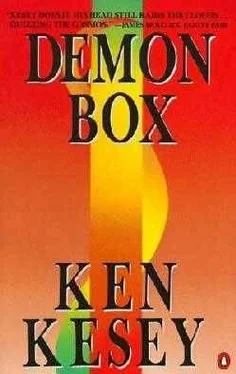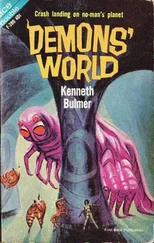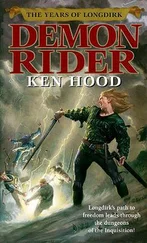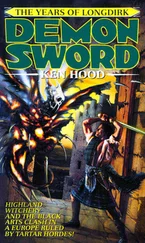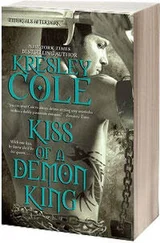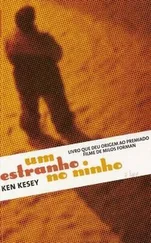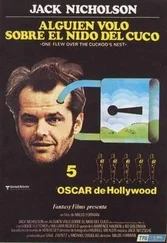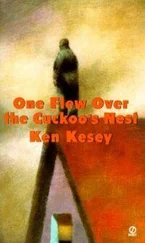The sun went down. Sherree brought the flashlight down from the house and some wet rags to towel some of the stuff from our faces while we labored. Blood and mud and sweat and shit. Finally, with a mighty tugging and grunting and rending of orifices, out it came: a pretty little bull, all black with one stripe of white in the corner of its mouth, as though he'd been drinking milk already and had drooled. It wasn't breathing. Betsy blew air into its lungs until they started pumping on their own.
We let the cow up but kept the tie around her neck so she wouldn't flee in exhausted craziness before she accepted the calf. Sherree brought her a bucket of water, and while the animal drank we stood back out of sight and shined the flashlight beam on the calf. Calmed by the drink, the cow stepped forward to sniff the wobbly child. I switched off the light.
The moon had come out and was dappling down through the oak leaves. She had begun licking the calf. I wanted to take the rope from around her neck so she wouldn't tangle in the brush, but she wouldn't let me near the loop knot to loosen it. I opened my buck knife and slipped up as close as I could and began sawing very gently at the rope a few feet from her back-straining head, humming as I worked. She looked back and forth from me to her calf in the moonlight. You could see the trust returning.
But apparently both jokers had been left in this deck. As the last strands parted, a car came rattling down the road and screeched to a halt by our mailbox, then backed up and swung in the drive and shut off the ignition. As the engine quit it gave a loud backfire and off the cow stampeded, right over the hapless calf.
Betsy and the kids went after the cow while I went after the car. It was unloading a rowdy crew and a barking dog. The crew was a bunch of Dairy Manufacturing majors from Oregon State who'd had a few brews after class and decided to drive down from Corvallis, check out how the famous commune was doing – and the dog was a goddamned German shepherd barking about how many chickens he could kill given the opportunity. I dispatched them quickly back northward, clattering and backfiring and cursing back at me – "Grouchy old baldheaded prick!" - then I returned to the swamp.
The cow was back with her calf, licking it and lowing. Betsy whispered it looked like she was going to stay. We crept away to the house and washed up. Betsy visited the mother and child once more before we went to bed.
"She's still with it. He hasn't got back up yet, though."
"He's probably exhausted. Lord knows I am. Let's get under the covers before something else happens."
In the morning the calf was where we had left him, dead. Lifting his body away from the grieving cow, I could feel some of his little ribs were broken. Who knows? From the rigors of the birth or the backfire that stampeded his mother over him? From Ebenezer's confused warning? Tory's bull's taunting? The position of the stars and the planets, the dice throw of destiny?
I buried him near what was left of his great-aunt Floozie. He made a small new hump next to the big old hump, blooming blue and yellow from the crocus bulbs we had planted there last fall. I haven't decided what we'll plant over his nutrients. Cowslips sounds about right.
Let's go Stewart; this dew has all my toes froze. Nighty-night, Ebenezer. Lie back down and tell the rest of the gals to cool it. It was just a fox, tell them, just a varmint in the dark.
THE DAY AFTER SUPERMAN DIED
Strung out and shaking he was, pacing distractedly about the clutter of his office upstairs in the barn, poking among the books and bottles and cobwebs and dirt-dauber nests, trying to remember what he had done with his colored glasses.
His special glasses. He needed them. Since before noon he had been putting off the walk to the ditch out in the field because the air was clogged with an evil eye-smiting smoke. Since the first smudge of dawn, long before his eyes had started smarting and his sinuses had begun to throb, and even before the hassle he'd just had with those hitchhikers down in the yard, he had been telling himself that this dreary day was going to be one real bastard without some rose-colored armor. Those glasses, he had been telling himself, would surely ease the day's sting.
As he paced past his window, he heard the heartbroken bleating of the mother sheep start up again, baffled and insistent, twisted by the hot distance. He pushed the curtain back from the sunlight and looked out over his yard into the field, shading his eyes. He couldn't see the lamb because of the thistle and Queen Anne's lace, but the three ravens still marked the spot. They eddied above the ditch, arguing over the first morsels. Farther away, in the ash grove, he could see the ewe bleating against her rope and, farther still, past the fence, the backs of the two hitchhikers. Little was visible beyond that. Mt. Nebo was only a dim line drawn into the hanging smoke. The merest suggestion. It made him think of Japanese wash painting, a solitary mountain form stroked hazily into a gray paper with a slightly grayer ink.
The Oregon farm was uncommonly quiet for this hour. The usual midafternoon sounds seemed held in one of those tense stillnesses that ordinarily prompt the peacock to scream. One New Year's Eve the big bird had called steadily during the half minute of burning fuse before Buddy's cannon went off, and last week it had screamed within seconds of the first lightning that cracked the iron sky into a tumultuous thunderstorm.
A storm would be a relief now, Deboree thought. Even the peacock's horrible squawk would be welcome. But nothing. Only the little clock radio on his desk. He'd left it on for the news, but it was Barbra Streisand singing "On a Clear Day, etc." Terrific, he thought. Then, above the music and the distant grieving of the sheep, he heard another sound: a high, tortured whine. Certainly no relief, whatever it was. At length he was able to make out the source. Squinting down the road toward the highway, he saw a little pink car coming, fast and erratic, one of those new compacts with a name he couldn't remember. Some animal – a Cobra, or a Mink, or a Wildcat – with transmission trouble, whatever the beast was. It squealed around the corner past the Olson farm and the Burch place and came boring on through the smoky afternoon with a whine so piercing and a heading so whimsical and wild that the hitchhikers were forced from the shoulder of the road into the snake-grass. The blond gave it the finger and the blackbeard hurled some curse at its passing. It screamed on past the barn, out of sight and, finally, hearing. Deboree left the window and began again his distracted search.
"I'm certain they're up here someplace," he said, certain of no such thing.
Deboree's eyes fell on his dog-eared rolling box, and he took it from the shelf. He gazed in at the seeds and stems: maybe enough could be cleaned for one now, but unlikely enough for one now and one later both. Better save it for later. Need it more later. And just as well, he thought, looking at the box in his hands. The little brown seeds were rattling all over the place. He was still trembling too violently with the surge of adrenaline to have managed the chore of rolling. As he returned the box to its niche in the shelf, he recalled an old phrase of his father's:
"Shakin' like a dog shittin' peach pits."
He had been up two days, grassing and speeding and ransacking his mental library (or was it three?) for an answer to his agent's call about the fresh material he had promised his editor and to his wife's query about the fresh cash needed by the loan office at the bank. Mainly, since Thursday's mail, for an answer to Larry McMurtry's letter.
Larry was an old literary friend from Texas. They had met at a graduate writing seminar at Stanford and had immediately disagreed about most of the important issues of the day – beatniks, politics, ethics, and, especially, psychedelics – in fact, about everything except for their mutual fondness and respect for writing and each other. It was a friendship that flourished during many midnight debates over bourbon and booklore, with neither the right nor the left side of the issues ever gaining much ground. Over the years since Stanford, they had tried to keep up the argument by correspondence – Larry defending the traditional and Deboree championing the radical – but without the shared bourbon the letters had naturally lessened. The letter from Larry on Thursday was the first in a year. Nevertheless it went straight back at the issue, claiming conservative advances, listing the victories of the righteous right, and pointing out the retreats and mistakes made by certain left-wing luminaries, especially Charles Manson, whom Deboree had known slightly. The letter ended by asking, in the closing paragraph, "So. What has the Good Old Revolution been doing lately?"
Читать дальше
